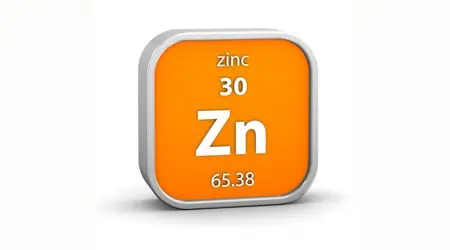
Want a simple solution for period and hormone problems? Consider the humble mineral zinc.
According to the 2020 paper, The Role of Zinc in Selected Female Reproductive System Disorders, zinc can be an effective treatment for many women’s health conditions, including PCOS, period pain, endometriosis, and the vaginal dryness of menopause.
Zinc for women’s health
- Period pain. According to several clinical trials (including one from 2023), zinc can significantly reduce period pain. It reduces inflammation and prostaglandins and is part of immune-modulating treatment for endometriosis.
- Irregular periods. Zinc helps to regulate the menstrual cycle by nourishing healthy ovarian follicles and promoting ovulation.
- Premenstrual mood symptoms. According to a 2022 randomized clinical trial, zinc supplementation can improve PMS.
- PCOS. Zinc is one of several natural androgen blockers that can reduce testosterone and improve androgen symptoms such as acne and hirsutism (facial hair). It works by inhibiting 5α-reductase and thus decreasing the production of dihydrotestosterone (DHT).
- Endometriosis. Zinc deficiency may play a role in endometriosis, and zinc supplementation can reduce the inflammation associated with the condition by reducing the activity of matrix metalloproteinases (MMPs).
- Acne. Zinc is an effective treatment for acne and works by blocking androgens, killing bacteria, and slowing sebum and keratin production.
- Perimenopause and menopause. Zinc helps to maintain collagen and tissue health and can relieve the vaginal dryness of menopause.
- Thyroid disease. Along with iodine and selenium, zinc is essential for the synthesis and activation of thyroid hormone and can improve the hair loss associated with thyroid disease. There’s a bidirectional relationship in that zinc promotes thyroid hormone, and thyroid hormone improves the absorption of zinc.
- Mood. Zinc supports the hippocampus, the part of the brain that dials down cortisol and the stress response.

Zinc deficiency
Zinc deficiency affects one in three women and is common with a plant-based diet because plant foods are low in zinc.
Zinc absorption can be impaired by alcohol, stomach medication, hypothyroidism, and hormonal birth control.
Symptoms of deficiency include:
- hair loss
- dermatitis
- impaired immune function
- white spots on the fingernails.
The test for zinc deficiency is plasma zinc with a normal reference range of 11-23 umol/L or 70-150 ug/dL).
Dose and safety
A safe and effective dose of zinc is 30 mg per day, and the best types are zinc citrate, zinc picolinate, or zinc bisgylcinate. Zinc on an empty stomach can cause nausea, so should be taken directly after a large meal. More than 80 mg of zinc for more than three months can deplete copper.
For more information, see my books Hormone Repair Manual (for women over 40) and Period Repair Manual (for women of any age).
